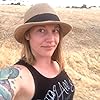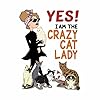Karma Kimeleon
asked
Peter Cawdron:
Hi, I've always wondered why the majority of your books take place in the US, or feature US citizens. Since I remember reading that you are Australian?
Peter Cawdron
Hi, Kim. That is a great question that has a number of layers to it so thank you for asking.
During the Cold War, America had a massive impact on western countries like Australia and New Zealand. I remember when the first McDonalds opened in Auckland, NZ. We were baffled. All our restaurants were for fine-dining. Suddenly, fast food had arrived. McDs lost money for the first year or so as no one knew what to make of it. I remember my mother asking, where are the waiters? Now, of course, it’s hugely popular.
Back in the 70s in NZ & Australia, shops would close at 5pm weeknights, and only a handful of small supermarkets would be open on a Saturday. On Sundays, major cities were ghost towns. When I first visited the US in the 80s, it was a culture shock—21 ice cream flavours, you’ve got to be kidding me! All day breakfast—what is this witchcraft? 24x7 fast food? Mind = blown. These days, though, I could take you to a dozen nearby places and you’d be hard pressed to know you were in Australia rather than the US (except for the vehicles driving on the other side of the road). So the US has shaped modern life Down Under.
We’ve adopted the good and the bad. This weekend, there was a “freedom” rally in Melbourne protesting against vaccines and lockdowns (even though Melbourne is not in lockdown and vaccines save lives) and—I’m not kidding, this is all over the news here—there were people with Trump 2020 flags (it is 2021, right?) and makeshift gallows reminiscent of the ones used in the Jan 6th attack on the US Capitol. So to say the US influences Australian culture is quite the understatement.
In my 20s, I spent 4 years living in the US (Kansas, Ohio & Indiana). I have a lot of friends there and love the best parts of American culture. I got to see a side of US culture that doesn’t make it into sitcoms and movies. I love the warm, friendly, open aspects of American culture. I love the diversity and the passion for equality so famously captured in the Declaration of Independence. I try to balance the good and the bad in my stories. In Wherever Seeds May Fall, as an example, there’s a YouTube Conspiracy Theory nut, but his worldview is negated by a US scientist and a US general. So I’m trying to capture the broad dynamic within US culture as it has a real impact on the rest of the world.
In novels like Jury Duty, I tackle issues that span multiple cultures (domestic violence is a real problem here in Australia and NZ as well as the US). In that book, the US protagonist starts out as a bad guy, meets some fascinating people from a number of different countries (including a Maori from NZ), and that changes his world view. That’s me trying to say cultural exchanges can be a two-way street.
In economics, we’re told, “When America sneezes, the rest of the world catches a cold.” Meaning, the influence of the US is so dominate, the rest of us get caught up in its wake and dragged along regardless. And that’s not just true of economics, it’s true in so many fields.
So why do I feature so many US citizens? Because the US has and will continue to influence the rest of the world—I’d like that to be for the better and so write from that perspective in my novels. The US is in the grip of a cultural war. I’d like the justice and equality to prevail.
Thank you for supporting independent science fiction
During the Cold War, America had a massive impact on western countries like Australia and New Zealand. I remember when the first McDonalds opened in Auckland, NZ. We were baffled. All our restaurants were for fine-dining. Suddenly, fast food had arrived. McDs lost money for the first year or so as no one knew what to make of it. I remember my mother asking, where are the waiters? Now, of course, it’s hugely popular.
Back in the 70s in NZ & Australia, shops would close at 5pm weeknights, and only a handful of small supermarkets would be open on a Saturday. On Sundays, major cities were ghost towns. When I first visited the US in the 80s, it was a culture shock—21 ice cream flavours, you’ve got to be kidding me! All day breakfast—what is this witchcraft? 24x7 fast food? Mind = blown. These days, though, I could take you to a dozen nearby places and you’d be hard pressed to know you were in Australia rather than the US (except for the vehicles driving on the other side of the road). So the US has shaped modern life Down Under.
We’ve adopted the good and the bad. This weekend, there was a “freedom” rally in Melbourne protesting against vaccines and lockdowns (even though Melbourne is not in lockdown and vaccines save lives) and—I’m not kidding, this is all over the news here—there were people with Trump 2020 flags (it is 2021, right?) and makeshift gallows reminiscent of the ones used in the Jan 6th attack on the US Capitol. So to say the US influences Australian culture is quite the understatement.
In my 20s, I spent 4 years living in the US (Kansas, Ohio & Indiana). I have a lot of friends there and love the best parts of American culture. I got to see a side of US culture that doesn’t make it into sitcoms and movies. I love the warm, friendly, open aspects of American culture. I love the diversity and the passion for equality so famously captured in the Declaration of Independence. I try to balance the good and the bad in my stories. In Wherever Seeds May Fall, as an example, there’s a YouTube Conspiracy Theory nut, but his worldview is negated by a US scientist and a US general. So I’m trying to capture the broad dynamic within US culture as it has a real impact on the rest of the world.
In novels like Jury Duty, I tackle issues that span multiple cultures (domestic violence is a real problem here in Australia and NZ as well as the US). In that book, the US protagonist starts out as a bad guy, meets some fascinating people from a number of different countries (including a Maori from NZ), and that changes his world view. That’s me trying to say cultural exchanges can be a two-way street.
In economics, we’re told, “When America sneezes, the rest of the world catches a cold.” Meaning, the influence of the US is so dominate, the rest of us get caught up in its wake and dragged along regardless. And that’s not just true of economics, it’s true in so many fields.
So why do I feature so many US citizens? Because the US has and will continue to influence the rest of the world—I’d like that to be for the better and so write from that perspective in my novels. The US is in the grip of a cultural war. I’d like the justice and equality to prevail.
Thank you for supporting independent science fiction
More Answered Questions
J Harvey
asked
Peter Cawdron:
I just finished Artifact, which I greatly enjoyed. Being an American, I found something that took me out of the story a little (for a moment). When O'Connor is at Oxford talking about "2 + 2 = ?" and he said (paraphrased) "You wouldn't get full marks if you just answered '4'". American's don't use "full marks", we use "full credit". "Full marks" sounds very odd to us. Just wanted to let you know.
Jeri
asked
Peter Cawdron:
I just recently discovered your books, starting with your short stories. Now I'm reading Mars Endeavor (Mars = my favorite planet). Wow! Wow! A-MAZE-ZING books, especially the short stories. How you can grab a reader for a short time is truly a talent. No question from me yet. :o) ?
About Goodreads Q&A
Ask and answer questions about books!
You can pose questions to the Goodreads community with Reader Q&A, or ask your favorite author a question with Ask the Author.
See Featured Authors Answering Questions
Learn more





